|
Anthomyiidae? Ecuador
|
|
| Isidro |
Posted on 15-10-2023 08:34
|
|
Member Location: Posts: 2055 Joined: 26.04.07 |
Yambo, Ecuador  |
|
|
|
| John Carr |
Posted on 15-10-2023 13:38
|
|
Member Location: Posts: 9773 Joined: 22.10.10 |
Muscidae or Anthomyiidae. |
|
|
|
| Isidro |
Posted on 15-10-2023 15:44
|
|
Member Location: Posts: 2055 Joined: 26.04.07 |
Thanks John, species not possible to ID? |
|
|
|
| John Carr |
Posted on 15-10-2023 19:02
|
|
Member Location: Posts: 9773 Joined: 22.10.10 |
A species ID would need a brighter, sharp picture and a lot of luck. |
|
|
|
| Nikita Vikhrev |
Posted on 15-10-2023 21:45
|
|
Member Location: Posts: 9193 Joined: 24.05.05 |
It seems to me that in 2nd photo there are rows of about 20 pv setae on t3. If so, it is Delia platura. Nikita Vikhrev - Zool Museum of Moscow University |
|
|
|
| Isidro |
Posted on 15-10-2023 21:51
|
|
Member Location: Posts: 2055 Joined: 26.04.07 |
Wow Nikita!!! You're amazing!!!! Zillion thanks!  Really, an introduced anthropic exotic species makes sense in the place where I've photographed it 
Edited by Isidro on 15-10-2023 21:52 |
|
|
|
| John Carr |
Posted on 16-10-2023 00:24
|
|
Member Location: Posts: 9773 Joined: 22.10.10 |
There are several presumably native species in South America closely related to Delia platyura. As of 1993 only one was described: D. sanctijacobi. According to the key by Gomes et al. (2022) (http://dx.doi.org....80.e82831) the eyes of D. platyura and D. sanctijacobi are closer togther ("frontal vitta usually obliterated at narrowest point of frons"). |
|
|
|
| Isidro |
Posted on 16-10-2023 06:52
|
|
Member Location: Posts: 2055 Joined: 26.04.07 |
Then is probably Delia sp, but not platura? Thanks! |
|
|
|
| Nikita Vikhrev |
Posted on 16-10-2023 08:25
|
|
Member Location: Posts: 9193 Joined: 24.05.05 |
1. Not Delia sp., but species of D. platura group. 2. I'm not very convinced by Gomes et al. (2022) publication. Authors divided D. sanctijacobi from D. florilega by COI sequence. In the morphological key they have not even compare D. sanctijacobi with D. florilega. Thus, D. sanctijacobi is a species described by COI sequence only, without any morphological confirmation. 3. I cannot see any trace of a brush of long dorsal setae on the first tarsomere of mid leg (the main diagnostic character for D. sanctijacobi and D. florilega). Nikita Vikhrev - Zool Museum of Moscow University |
|
|
|
| Isidro |
Posted on 16-10-2023 10:01
|
|
Member Location: Posts: 2055 Joined: 26.04.07 |
Thanks a lot, very useful Nikita! I deeply disagree in taxonomy based on genetics only - it's completely unreliable. I would not considere valid none species described by sequences only. |
|
|
|
| John Carr |
Posted on 16-10-2023 12:29
|
|
Member Location: Posts: 9773 Joined: 22.10.10 |
Griffiths compared morphology of all three species in his revision of Nearctic Delia. |
|
|
|
| Jump to Forum: |


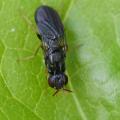



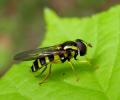
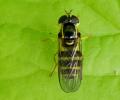

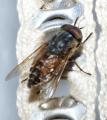
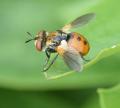



 but don't see the image in the post.
but don't see the image in the post.